| Read
BOOKS, TRAVELS and INTERNET. See our new INYT
sections devoted to books, travel and internet
sites. |
| Missing Shakespeare: after ten years
the stolen First
Folio resurfaces in US |
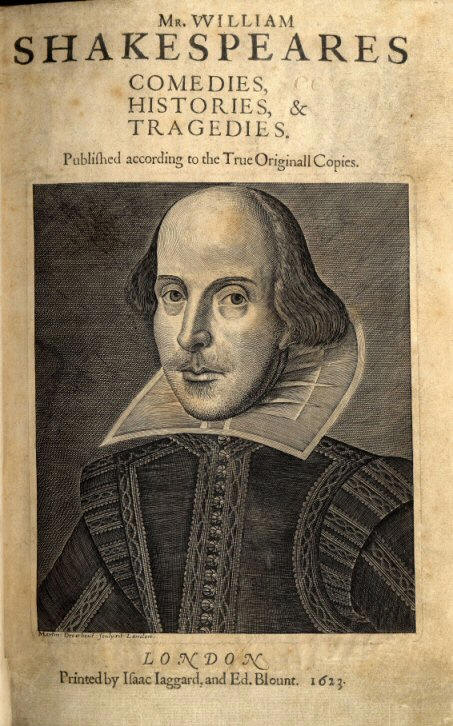 |
For 10 years, Interpol had
been watching for the reappearance of one of
Britain's great literary treasures, a First Folio of
Shakespeare's complete plays, printed soon after his
death, worth around £15m. Part of a Durham
University collection, the work had been stolen in
1998, along with early handwritten manuscripts
bearing an English translation of the New Testament
and a fragment of a poem by Chaucer, from a public
display charting the progress of English literature
from the Middle Ages to the 20th century. The trail
remained cold until an international businessman,
who claimed to have bought the collection of 36
plays in Cuba, walked into a library in Washington
DC and asked staff to verify it as genuine. A
spokesman for Durham police said yesterday the man
was persuaded to leave the book for research by
librarians, who quickly linked it to the Palace
Green robbery in the shadow of Durham cathedral.
Back in Washington, Tyne and
Wear, on Thursday afternoon, and arrested a man
after a liaison with the FBI and a call from the
British embassy. Neighbours described the man, named
locally as Ray Scott, as a "slightly eccentric"
character who had lived with his elderly mother for
years and who owned a Ferrari, but seldom drove it.
Mik Kennedy, who lives next door to Scott, said
police had since removed eight vanloads of books and
photographs from the man's house. He described Scott
as eccentric, adding: "He's the last person anyone
would expect to be involved in something like this."
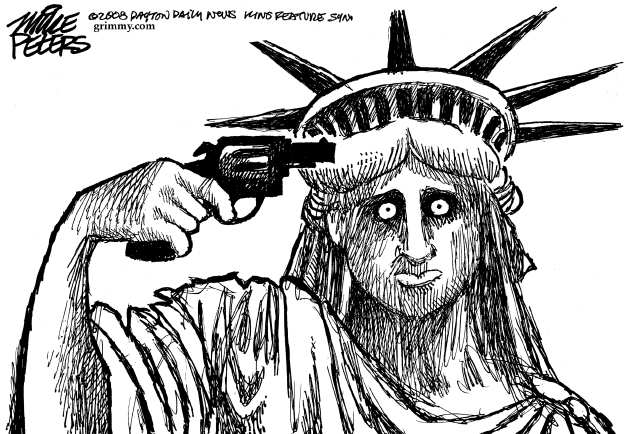 |
| The state of
the Union? |
| Neighbours
believed he sold old books on the net.
Detectives are now questioning Scott about
the "international businessman" who turned
up across the Atlantic, in the other
Washington, with one of the world's most
valuable books. The stolen volumes have been
described by Durham University as "a unique
and irreplaceable part of the region's
heritage which will be virtually impossible
to sell to legitimate buyers". The
university expressed delight yesterday at
its recovery after so long. "Like
Shakespeare himself, this book is a national
treasure, giving a rare and beautiful
snapshot of Britain's incredible literary
heritage," said Bill Bryson, Durham's
chancellor. The vice-chancellor, Prof Chris
Higgins, said: "Staff and the community felt
a huge sense of loss when the books were
stolen, so you can imagine my excitement
when I received the call from the police to
say the First Folio had been found. "Durham
University is custodian of many priceless
historic treasures." The First Folio is one
of 228 of the original 1,000 copies that are
known to have survived. All are highly
valued. Only two are in private ownership, a
situation which before 1998 was seen as
effective protection for library and
institutional copies, because of the
impossibility of open market sale. Det Supt
Andy Reddick, who is leading the inquiry,
said that there was no suggestion at the
moment that the seven other items stolen
from Palace Green had been found - they
included a first edition of Beowulf and a
manuscript of the life of the Anglo-Saxon
saint Aelfric. Reddick added that the folio
was in the care of the Folger Shakespearian
Library in Washington DC. Prof Higgins
said: "Our security has been very
significantly reviewed and enhanced to the
highest standards since the theft 10 years
ago and we are confident the First Folio
will be safe when it arrives back in Durham.
We also very much hope that the other books
stolen at the same time will be found soon."
The First Folio is the first published
edition of the collected works of
Shakespeare. It was published in 1623, seven
years after the playwright's death. The
folio includes 36 plays, 18 of which,
including Macbeth, had never been printed
before. Without the First Folio many of
Shakespeare's plays would probably have been
lost forever, earning it the title of, "the
most important work in the English
language". On its publication, the folio
sold for £1. It now has an estimated value
of £15m. |
|
|
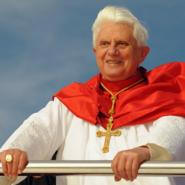 |
| The
Pope has apologized for the
“evil” perpetrated on Australian
child sex abuse victims by
pedophile priests, admitting it
had seriously damaged the church
and calling for those
responsible to be brought to
justice. |
|
|
| French first lady Carla Bruni-Sarkozy helps an
admirer to take a picture at
the end of the Bastille Day
military parade in Paris |
|
|
 |
|
A price war is
raging between a powerful online bookseller and
a leading publisher, with authors caught in the
crossfire and losing vital royalties. Amazon is
in conflict with the Hachette Group, Britain’s
largest publisher, over terms and discounts and
is refusing to sell its titles. The online
bookseller has imposed extraordinary sanctions
against the publisher, whose authors include the
bestselling writers Stephen King and James
Patterson. It is listing Hachette books but
preventing the public from purchasing them by
removing the “buy new” button from its websites.
Titles such as the hardback of King’s Duma
Key and Patterson’s The 6th Target
have been affected with only “used” copies being
offered for sale. |
 |
|
A plan for a glass
ziggurat to house the £215 million extension to
the Tate Modern has been dropped. Under a radically revised design unveiled
today, instead of a series of glass-covered
cubes the new building will be a part-pyramid
covered in a brickwork lattice. The brickwork is
designed to make it greener, while vast oil
tanks underneath the building are to be
converted into exhibition spaces. |
|
SUMMER READING John Francis
Kinsella's latest novel, Death in
Kovalam, takes place in
India where Tom
Barton, a City mortgage broker, arrives
in Kovalam, Kerala after abandoning his
business in the wake of the subprime
crisis. In his luxury hotel he meets
Emma, the wife of Stephen Parkly, the
CEO of a London bank, West Mercian
Finance. Stephen Parkly falls gravely
ill with a mysterious infection and is
hospitalized in a local clinic.
|
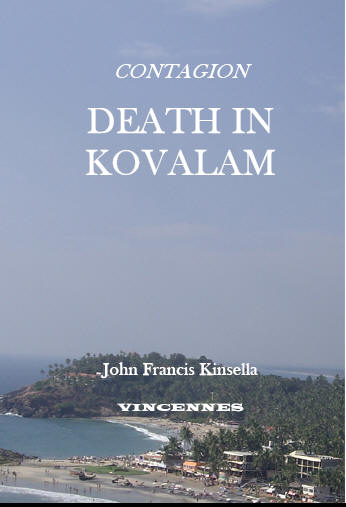
|
The disease is diagnosed as
cholera, panic sets in when tourists start to
fall ill with the deadly infection, just as the
tourist season is getting into the full swing of
the festive season. |
|
|
| On
the eve of the Olympics China vetoes
Zimbabwe sanctions |
|
 |
| Russia and
China wielded their veto to kill a
resolution imposing UN sanctions on
President Mugabe and his inner circle in
a defining vote in the 15-nation
council. Another shameful act of
political self interest by so called
great powers, in fact totalitarian
states. |
|
|
|
|
MEDITERRANEAN UNION
IN VIEW |
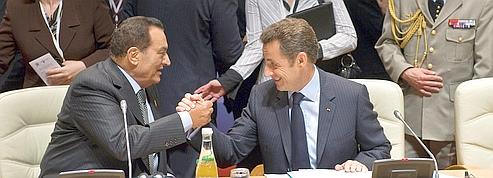 |
|
French President
Nicolas Sarkozy has
launched a new
international body
with 43 member
nations aimed at
ending conflict in
the Middle East.
The Union for the
Mediterranean will
tackle issues such
as regional unrest,
immigration to
pollution.
|
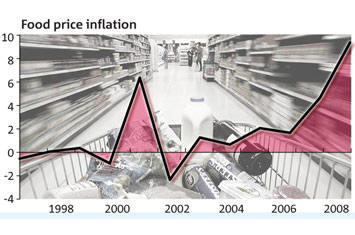 |
Inflation hit a
26-year high today
and stock markets
crashed around the
world. Panic gripped the
City and Wall Street
as the global
economy drifted
towards "a perfect
storm", adding to
pressure on Gordon
Brown a week before
a crucial
by-election. In today's bout
of financial
turbulence:
• The FTSE 100
Index fell 160.2
points in frantic
trading as
confidence drained
out of the stock
market. It later
recovered some
ground but bank
shares are now at
their lowest level
for a decade.
• The Dow Jones
Industrial Index
dropped more than
200 points after
Federal Reserve
chairman Ben
Bernanke admitted
the US economy faces
"numerous
difficulties".
• The dollar fell
to a record low
against the euro as
currency markets
panicked over the
deteriorating
finances of two US
mortgage giants and
the "parlous state"
of the US economy.
• American
depositors were
queuing to take out
their savings after
a collapsed bank had
to be taken over by
the government in
their version of the
run on Northern
Rock.
Billionaire
investor George
Soros said it was
"the most serious
financial crisis of
our lifetime". The cost of
feeding a family has
soared by more than
10 per cent in the
last year, the
highest rate for
more than a quarter
of a century. Shock inflation
figures today
revealed that a
typical weekly food
shop costs 10.6 per
cent more than last
year. The last time
food prices were
rising in double
digits was 26 years
ago, in May 1982.
Prices
are now going up at
the fastest rate
since May 1992. The figures are a
huge blow to the
Bank of England's
efforts to bring
inflation under
control and starkly
illustrate how the
global oil crisis is
hitting virtually
every household by
forcing up prices.
It also means
that any remote
chance that the Bank
might cut its base
rate next month has
now been crushed.
The Bank's target is
a two per cent
inflation rate. City forecasters
rushed to rewrite
their predictions
for the economy
after the figures
were released. Most
had been expecting
inflation to peak at
around four per cent
in the autumn but
some now fear it
could hit five per
cent. Jonathan Loynes,
chief European
economist at Capital
Economics, predicted
that at the current
rate of inflation,
CPI would hit 4.5
per cent or five per
cent in the run-up
to Christmas. He said: "We
still think that
inflation will drop
back sharply next
year, eventually
freeing the way for
deep interest rate
cuts. But there is
worse to come
first," he said. Today's figures
show that some
staples such as
butter have gone up
by almost a third in
a year while bread,
cheese and milk are
almost a fifth
higher. Food prices
have been forced up
by rising
distribution-costs,
bad weather,
including-last
summer's floods, and
shortages caused by
the rush to convert
land to bio-fuel
crops. A survey by
the British Retail
Consortium showed
the first rise in
non-food prices on
the high street
since 2006. Carpets,
books and restaurant
meals are costing
more. However, most
economists still see
the rises as a
temporary "spike"
caused mainly by oil
rises rather than a
move towards
Seventies-style
hyper-inflation-John
Cridland, deputy
director general of
the CBI, said: "The
fact that the
economy is slowing
will bring inflation
down, but not until
next year." But unions bosses
gave an ominous
warning of potential
conflict over the
higher cost of
living.
|
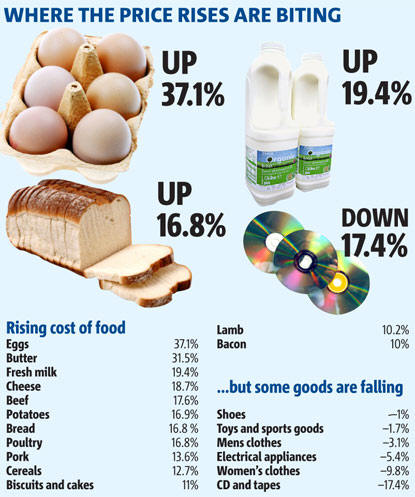 |
|
Worried customers
line up outside
IndyMac |
|
|
|
|
|
Jelly fish in the Mediterrainian |
| A
proliferation of jelly fish in
the Mediterrainian has been
caused by overfishing and an
increase in temperature due to
clilmatic change. |
|
|
|
| Royal County Down
golf course in Northern Ireland |
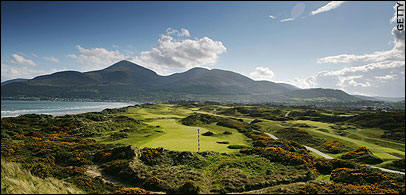 |
|
|
The
Independent New York Times will be pleased to
receive your articles and comments. Please
contact our editorial desk at the following
address
sumpinein@gmail.com
and we shall endeavor to answer you promptly. |
|
|
|
A British woman is
facing six years in a
Dubai jail after a
drunken romp on the
beach. ANNA WRIGHT, who
lived and worked in the
Muslim country for two
years, says that this
clash of cultures was an
accident waiting to
happen. |
|
Despite soaring rental prices,
the majority of expats can
afford the kind of luxury they
could barely dream of in the UK,
with vast villas, sweeping
balconies, swimming pools and
en-suite bathrooms as standard.
Ordinary people are snapped on
nights out for the pages of the
local glossy magazines. It is
little wonder that they
start to believe they are
untouchable.
The police take a deliberately
non-confrontational approach.
One senior officer told me
openly that if they were tipped
off about an unmarried couple
living together – something that
is officially illegal and leads
to all sorts of complicated
negotiations and fake
engagements when renting a home
– they would only act if the
people involved were Muslim.
In the meantime the
Qatar Investment Authority has
become
Barclays’ largest
investor after less than a fifth
of the bank’s existing
shareholders participated in its
£4.5bn capital-raising issue.Barclays said on Friday that
19 per cent of existing
shareholders had taken up their
rights in the ‘claw-back’ issue.
The bank had conditionally
pre-placed shares with around 20
institutional investors as well
the QIA and Challenger, a Qatari
fund.
|
|
NEW YORK (Reuters) - The
nightmare scenario for U.S.
economic authorities is here:
confidence in their ability to
rescue the country from a
housing-led financial panic is
now at its lowest level since
the crisis began.
This means losses for investors,
already totaling nearly half a
trillion dollars, could mount
even further over the next few
months, with implications for
business investment and the
overall health of the economy.
"You see a massive potential
for financial meltdown on a
global scale," said T.J. Marta,
fixed-income strategist at RBC
Capital Markets.
|
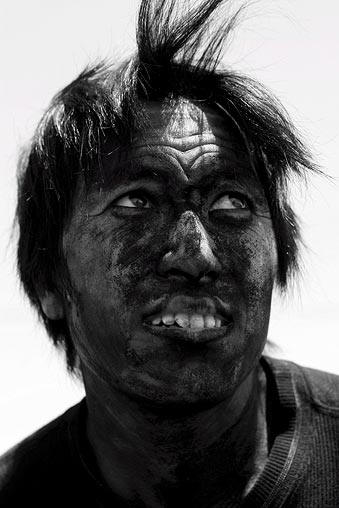 |
| Chinese coal
miner |
| The
Chinese government has said that the
death rate per million tonnes of coal
produced in the first half of 2008 had
dropped from 1.485 to 1.05 for all of
2007, and from 3.08 in 2005. The
double standards of human rights
activists, calling on Western
democracies to put pressure on China
over its occupation of Tibet and its
human rights abuses, should be seen more
objectively given the invasion of Iraq,
Afghanistan and the economic chaos
caused by the stupidity of its banks and
financial institutions that is now
causing grief to millions of families
they encouraged to take on unaffordable
debts The West has no moral authority to
lecture anyone, including China, about
rights and democracy. Respect for
liberty is at an historic low in Europe
and the US. |
|
 |
|